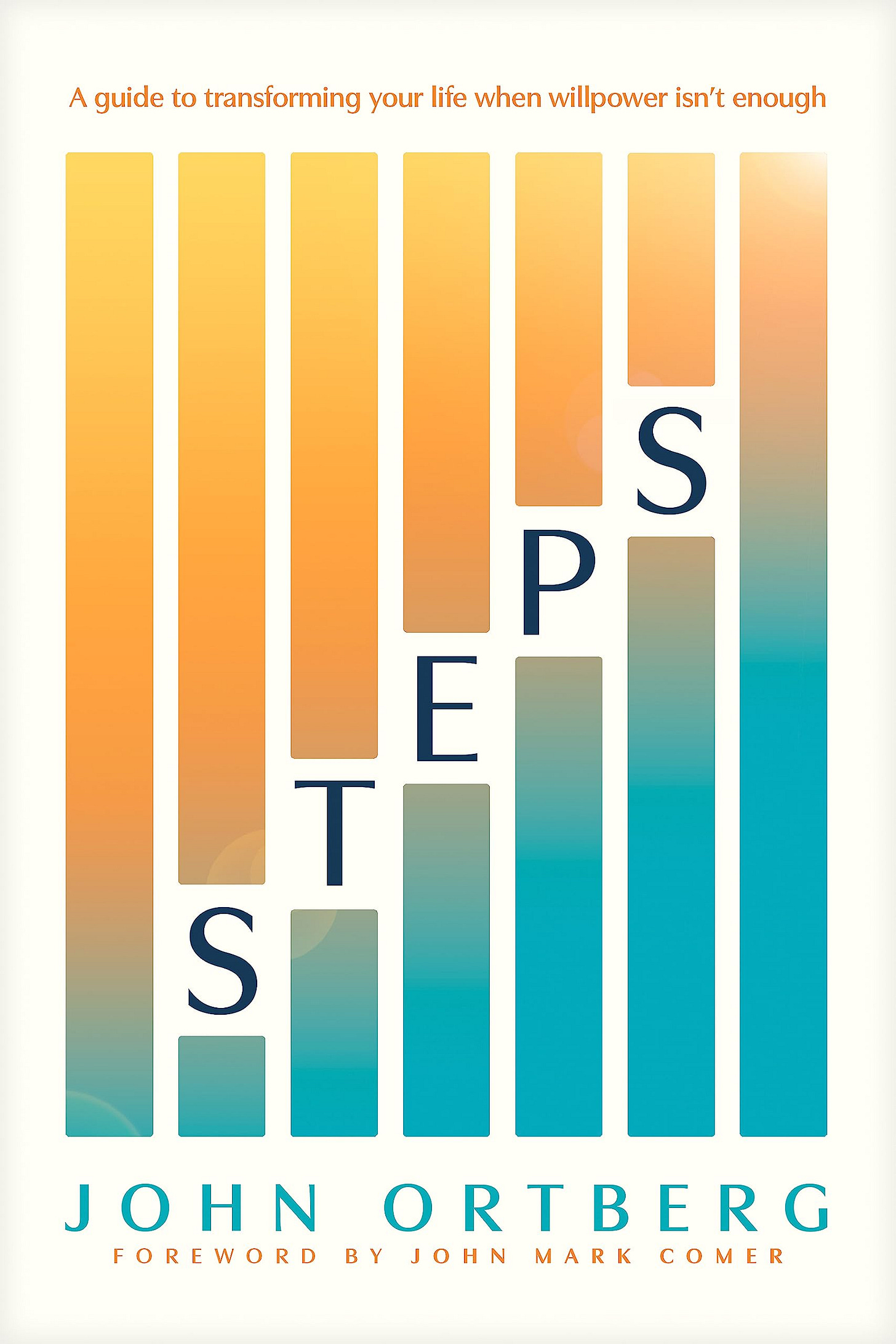Steps, a new release this week from John Ortberg, is worth your time. As of this writing, I am not completely done with it, but I will be quickly and then I will read it again slowly. And slower still after that.

I’ve been getting thoughts together and writing some chapters on recovering our lives with Jesus by having faith like Jesus. I’ve been reading a lot of books surrounding different kinds of recovery. There are some good books out there: Breathing Under Water by Richard Rohr, probably the only Rohr book that didn’t make me raise an eyebrow, Addiction and Grace by Gerald May, and Addiction and Virtue by Kent Dunnington to name a few. Ian Cron just released one called The Fix that’ll I get around to one day.
Steps feels different. It’s amazingly vulnerable, practical, and expansive in its attempt to talk about recovery. It imagines a world where Christians actively engage in the steps of recovery, not because they’re necessarily addicted to something (though they probably are) but because the steps are very much rooted in how Jesus lived.
In an early chapter Ortberg talks about a book titled, Why Can’t Church Be More Like AA Meetings? Ortberg’s answer is, “They can if Christians learn to be more like alcoholics.” Of course he doesn’t mean we should create an addiction to alcohol. Just as Jesus telling the Pharisee that those who have sinned more are forgiven more is not Jesus advocating for a more sinful life so that you can experience more forgiveness. No, what Ortberg is getting at, I think, is a radical honesty and desire to change. It is a recognition of the bottom you didn’t know you hit.
If you’ve ever spent time in a recovery meeting, one of the first things you’ll notice is how welcoming they are. They are not there to judge you. It’s likely you’ve done that enough to yourself. Depending on the meeting, they probably won’t even give you advice. In a good handful of meetings, after sharing why you’re there, the only thing you’ll hear is, “Thank you for sharing.” It’s the only offering they can lay down; letting you be seen and heard and nothing else. The AA book, The Big Book, has a line that reminds us that “our best ideas got us in this room” so listening is the best thing we can offer.
Even if you feel you don’t have an addiction, reach out to a local meeting and ask to sit in on one. My guess is you’ll walk away surprised at how much you have in common with the people in the room and you’ll have a craving for more of…whatever just happened. Transformation is what it is.
For Christians to be more like alcoholics is to become comfortable admitting our helplessness. It is releasing the fear of being truly known. Yes, I think that’s as much a fear as it is a desire. I don’t remember who said this to me, but it resonated: The desire to be known feels like drawing you close with one hand while trying to shove you away with the other. To admit that we are powerless, at least in the way many think about power, is a devastating thing to admit. It’s admitting we have a lot less control than we’re aware of.
For most of my life when people asked me why I only ordered fries at a meal or asked why I wasn’t eating at a party I would lie and say I just ate, or I wasn’t that hungry, or a thousand other little lies to keep from telling the truth: I have a weird thing with food that I don’t think anyone else has and I want to keep being your friend so I’m not going to tell you about it.
Over the last handful of years as I’ve learned that what I have is a disorder (ARFID) and that there are thousands of people with this disorder, I have become more comfortable with the truth. There is power in knowing you are not alone. Admitting that we are powerless over an addiction is not the same as admitting that we are powerless altogether. Recovery is admitting that parts of our lives have become unmanageable, and we need help to restore it. Sometimes that’s a 12-Step group, sometimes it’s a church small group, sometimes it is family and friends, sometimes it is a therapist, sometimes it is a spiritual director, but all of the time it is never alone.
The hardest part of becoming like an alcoholic is admitting it. We are laying down our desire to be seen as “put together”, or on top of life, or even sane. Instead, we lead from our weaknesses; we speak plainly about the desperation the addiction has brought. Why do we do that? Well, mainly because what most people view as weakness is actually someone learning something valuable about themselves that they’ve always considered to be negative. In the Bible, Paul calls it a “thorn in my side”. Something that just won’t go away, a limp in our being. Leading with the limp shows determination and vulnerability to let the limp eventually give you strength.
So this week, I invite us to consider a few questions:
What do you feel powerless against? How is that influencing your life?
Who do you trust that has felt the same way?
What weakness might be strengths?





Oooo...adding this to my "want to read" list so fast. I have had my life absolutely transformed through a recovery ministry at our church and didn't have an "addiction" so to speak. But for sure had dependencies I was going to in order to avoid my uncomfortable feelings...and others'. I can't shout it from the rooftops enough, but healing ALWAYS happens in community. As you said "all the time it is never alone."